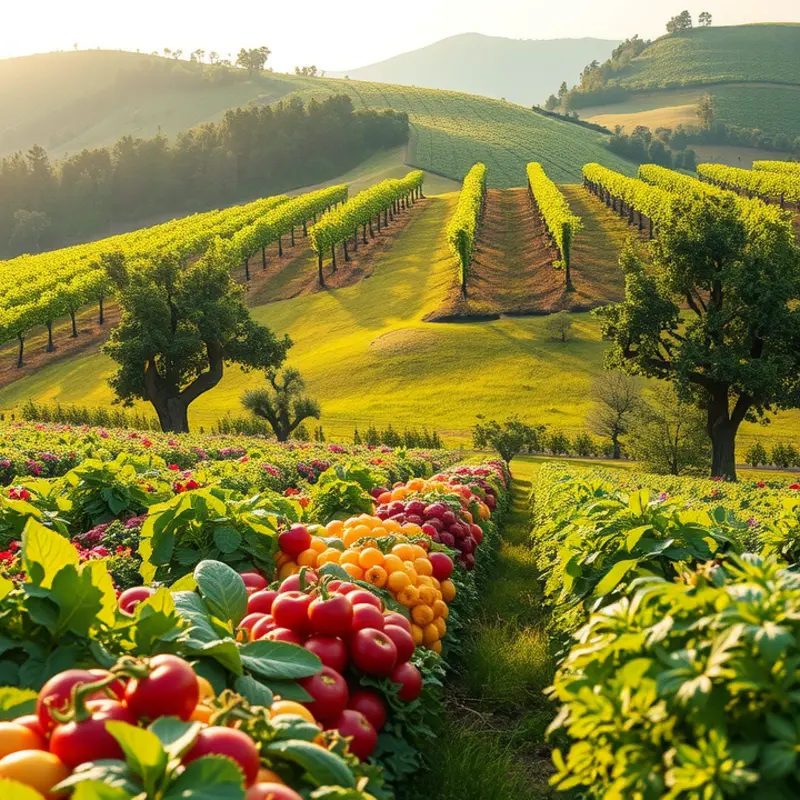Embracing ethical cooking from scratch opens the door to sustainable food choices that benefit both you and the planet. For environmentally-conscious individuals, this culinary journey involves more than just delicious meals; it fosters a deeper connection with food, promotes health, and minimizes environmental impact. Through mindful ingredients, cooking practices, and a commitment to sustainability, anyone can learn to create meals that honor the earth while satisfying their taste buds.
The Roots of Ethical Cooking

Ethical cooking is not just a trend; it’s a philosophy rooted in mindfulness and sustainability. It involves a deliberate approach to how we source, prepare, and consume food. By starting from scratch, we gain control over every aspect of the meal, ensuring minimal waste and maximum respect for our environment.
The principles of ethical cooking start with ingredient sourcing. Prioritize local farmers and markets that adhere to sustainable practices. This choice reduces the carbon footprint associated with transportation and supports local economies. When possible, engage directly with producers to understand their farming practices, ensuring they use eco-friendly methods.
Embracing seasonal produce is another cornerstone of ethical cooking. Seasonal fruits and vegetables are fresher, more flavorful, and require fewer resources to produce. They often require less storage and transportation, further reducing their ecological impact. Learn to adapt your menu to the seasons, inviting diversity and freshness into your meals.
Ethical cooking also means reducing waste. By utilizing every part of an ingredient, like vegetable peels and meat bones, you can create stocks and broths that enrich dishes without added costs or waste. This practice aligns with responsible consumption, a crucial component of sustainability.
Techniques that minimize carbon footprints are central to our journey. Cooking methods like steaming, pressure cooking, and stir-frying are efficient and resource-saving. They demand less energy and water, making them fitting choices for an eco-friendly kitchen.
Sustainability extends beyond the kitchen; it’s about the global impact of our culinary choices. Prioritizing plant-based meals is one strategy, as they generally require fewer resources than animal products. When selecting non-plant-based items, look for those labeled as sustainably sourced or fair trade.
Dive deeper into the art of balancing ethical considerations with culinary creativity, discovering that ethical cooking can be both fulfilling and innovative. For those looking to maximize their food storage efficiency while maintaining eco-friendliness, explore these tips for effective kitchen storage solutions.
Adopting ethical cooking practices is more than a movement; it’s a commitment to a sustainable future. As we align our culinary adventures with eco-friendly principles, we contribute to a healthier planet while nourishing our bodies with integrity and consciousness.
Mastering the Art of Cooking from Scratch

Embracing cooking from scratch is not just a choice; it’s a commitment to eco-friendly living. It enhances your culinary skills while contributing to a sustainable future. By integrating meal prepping into your routine, you streamline the cooking process, reducing both time spent in the kitchen and food waste.
Meal Prepping:
A practical approach to cooking from scratch is meal prepping. Begin by selecting whole foods like vegetables, grains, and proteins. Dedicate a part of your weekend to prepare meals for the week ahead, ensuring you use seasonal produce to enhance flavor and nutrition. For those aiming to minimize effort, try minimal prep dinner ideas, which simplify the prep process without sacrificing taste.
Leftovers Transformation:
Leftovers are often overlooked but offer great potential when reincarnated into new dishes. A bit of creativity can turn last night’s dinner into today’s lunch. Try shredding leftover roast chicken into a hearty salad or transform cooked grains into delicious patties. This practice not only saves money but also drastically cuts down food waste.
Whole Foods Utilization:
Cooking from scratch with whole foods means using every part of the ingredient. For instance, make a vegetable broth with peels and scraps. Instead of discarding broccoli stems, dice them and sauté with garlic for a quick side dish. Embracing this mindset reflects nature’s cyclical essence and replenishes our kitchens with nutrient-dense meals.
Seasonal Ingredients Magic:
Incorporating seasonal ingredients is essential for maintaining nutritional value. They are fresher, tastier, and usually more affordable. Celebrate autumn with pumpkin soups, or savor the crispness of spring asparagus with a dash of lemon juice. Seasonality not only enriches the taste but also connects us with local agricultural practices, supporting the environment.
Reducing Food Waste:
Mindful cooking is a gateway to sustainable culinary practices. Reducing food waste involves strategic shopping, accurate portioning, and confident creativity with recipes. For instance, blending wilting greens into smoothies or soups is a tasty solution to decay. For more insights, refer to this guide on low waste cooking prep, which offers ways to minimize wastage from your kitchen endeavors.
Cooking from scratch is a journey that transforms the mundane act of eating into a culinary adventure. It bridges the gap between ethical cooking practices and personal fulfillment, encouraging us to relish the flavors of homemade dishes while championing a sustainable ethos.
Final words
As you embark on your journey into ethical cooking from scratch, remember that every meal is an opportunity to make a positive change. By choosing local, seasonal ingredients and minimizing waste, you’re contributing to a healthier planet while treating yourself and your loved ones to delightful meals. Take joy in the process, experiment with flavors, and share your discoveries with your community. Together, we can foster a sustainable food culture that respects our earth and enhances our well-being.








